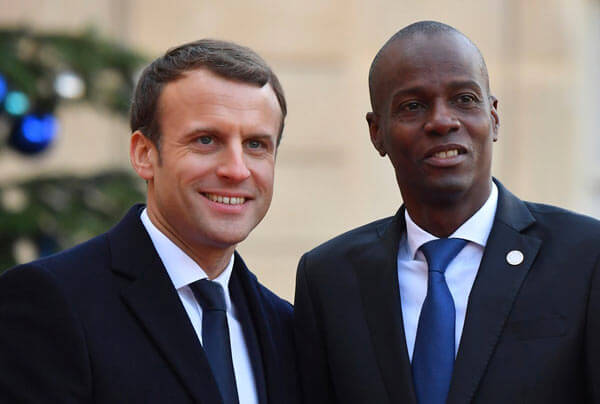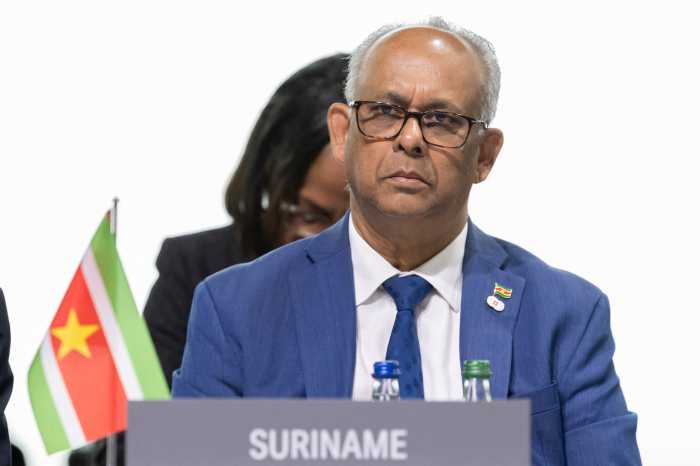Caribbean
Britain is providing more financial help to Antigua and Barbuda as well as Dominica to assist in the recovery and long-term reconstruction on the islands following the devastation caused by Hurricanes Irma and Maria.
International Development Secretary Penny Mordaunt who accompanied Prince Charles on his recent visit to the two hurricane ravaged islands, is giving a new £15 million package to Antigua and Barbuda and Dominica, which will receive £12 million.
The British government official said this is in addition to £15 million already allocated to the Overseas Territories.
The support package, which brings the total contribution to £92 million, will include £10 million to help Dominica rebuild critical infrastructure damaged during the hurricanes.
The United Kingdom’s contribution to Dominica also includes an additional two million pounds for early recovery, building on the five million pounds committed in September.
Mordaunt said that for Antigua and Barbuda, it stands ready to assist with a £3 million-fund, which will be deployed once the priorities for reconstruction on Barbuda are agreed with the local government.
Antigua
The Antigua and Barbuda government has submitted a proposal to the University of the West Indies (UWI) for the establishment of the university’s fourth campus.
A special session was held in Jamaica in October by the UWI Council, chaired by Chancellor, Robert Bermudez, to receive submission from the Antigua and Barbuda government to establish a campus.
The Council vice-chairman, Professor Sir Hilary Beckles indicated that ongoing conversations with the government had reached maturity and that a proposal was ready.
The vice-chancellor traced the 70-year history of the UWI from its single faculty, single campus status, in 1948 to a tri-campus university with the addition of the St Augustine and Cave Hill campuses in Trinidad and Tobago, and Barbados respectively in the 1960s. The Open Campus was established 10 years ago in the last significant restructuring.
Deputy Prime Minister of Antigua and Barbuda, Steady Benjamin, presented his country’s case arguing that only a campus producing a diversity of human resources at a much higher level could attract the investment capital necessary to drive economic growth above the current two to three percent growth per year.
The Council acknowledged the need to examine the Antigua and Barbuda government’s proposal and has authorized the vice-chancellor to establish a task force comprising university officials, students and other stakeholders to conduct a feasibility study- examine and evaluate the financial, operational and strategic viability and the sustainability of the establishment of the new campus.
Barbados
Barbados is moving to establish plea bargaining for accused people in a bid to address the backlog of cases. And a draft bill is now in the Attorney General’s Office to take to parliament.
Attorney General Adriel Brathwaite recalled that the late director of public prosecutions, Charles Leacock, QC, was of the view that many of the accused persons would accept a plea if given the opportunity.
This is one of the areas which was recently discussed when members of the island’s judiciary, attorneys and those working in the criminal justice system underwent a two-day training course conducted by officials from the Ministry of Center for State Courts in Sentence Indications Hearing.
Speaking during the opening of the workshop, Brathwaite said Barbados had a situation where more than 50 percent of prison inmates were on remand.
While acknowledging that significant strides were being made to reduce the backlog so far, Brathwaite stressed that additional resources were required if they were to be successful.
While noting that giving persons the option to accept a guilty plea would assist with the backlog in the court system, Chief Justice Sir Marston Gibson said it was not simple as it had to be done to withstand appellate scrutiny.
Haiti
The Inter-American Development Bank (IDB) is giving Haiti a US$65 million grant to help the impoverished Caribbean country improve drinking water and sanitation services in Port-au-Prince area, in particular those affected by Hurricane Matthew.
The funds will help improve the sanitary situation in the capital and rural communities by supplying them with drinking water and sanitation services and enhancing hygiene practices and focus on the needs of the population living in areas affected by the last hurricane.
The project will also help strengthen the ability of the Port-au-Price region’s Technical Service Centre to improve the company’s financial sustainability, as well as the capabilities of the Regional Drinking Water and Sanitation Agency.
Hurricane Matthew has caused major damage to the drinking water system in the departments Nippes, Sud and Grand ‘Anse. Total losses caused to the sector by climate events have been put around US$20.6 million, including $14.2 million in damages in rural areas.
Some 60 drinking water facilities have been severely damaged or totally destroyed.
Jamaica
Jamaica’s Commissioner of Police George Quallo has called for divine help of the church in the fight against crime, as the murder rate has sky-rocketed past the 1,400 mark.
Quallo, who was speaking at the recent Jamaica Constabulary Forces’ (JFC) 150th Commonwealth and Memorial Church Service at the Church of the Open Bible, in the St. Andrew parish, said that as the nation grapples with crime and violence, it is critical that substantive partnerships are secured and sustained to rebuild and maintain safer communities.
“We care calling on the church and its members to help us to help people to examine the choices they are making. Yours is also a pivotal role in crime prevention and we crave your partnership if we are to be successful in combating and ultimately rid Jamaica of this scourge that plagues us,” he told the congregation.
The commissioner also followed similar remarks by National Security Minister Peter Bunting, who recently said it is going to take divine intervention to help solve the crime problem.
As of Nov. 17, 2017 a total of 1, 404 lives have been lost, compared to the 1,137 people who were murdered last year over the same period.
Suriname
Suriname Foreign Minister, Yidiz Pollack-Beighle became the first minister from her country to visit Russia recently where she held bilateral talks with Russian Foreign Minister, Sergey Lavrov.
The Russian Foreign Ministry said in a statement that Beighle’s visit is a milestone in promoting Russia-Suriname interaction, and is indicative of the fact that “our ties with Latin America and the Caribbean region are gradually expanding.”
During the talks, the ministers signed several bilateral agreements to “promote political dialogue, interaction in the material sphere and cultural humanitarian exchanges.”
The minister said Russia also sees other prospective areas of cooperation including renewable energy sources agriculture, shipbuilding and repair, adding that there’s good potential in exploration, fishing, building a tourist infrastructure.
The Suriname minister also paid a visit to the Kingdom of Morocco. The Morocco — Suriname relationship dates back to “people to people” ties after 1975, when hundreds of thousands of Surinamese migrated to the Netherlands and established relationships with Moroccans there. These ties developed and Moroccans from Holland invested in Suriname.
– Compiled by Azad Ali


























